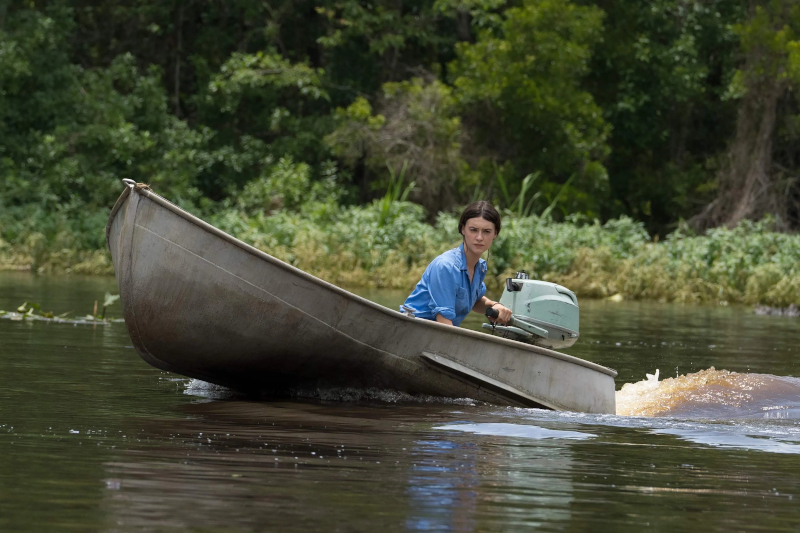Director – Olivia Newman – 2022 – US – Cert. 15 – 125m
***1/2
A young woman who grew up alone in the North Carolina Marshlands is the prime suspect for a murder she may or may not have committed – out in cinemas on Friday, July 22nd
The body of Chase Andrews (Harris Dickinson) is discovered having fallen to his death from an old, 63’ high viewing platform. But did he fall or was he pushed? The reclusive, local outcast and so-called ‘Marsh Girl’ Kya Clarke (Daisy Edgar-Jones) swiftly becomes the prime suspect after sheriffs find a red, woolly hat at her house, a fibre from which matches one found on Chase’s corpse.
As the investigation proceeds in the generic form of a whodunit by way of a courtroom drama, with the kindly Tom Milton (David Strathairn) as her self-appointed defence attorney against the state prosecutor in her jury trial, the narrative spilts into two separate strands, with the story of Kya’s personal history from childhood to the then present day of 1969 running in parallel until… well, refusing to divulge spoilers forbids me from saying, except that the final reel and the ending are arguably the most satisfying part of this engrossing movie.
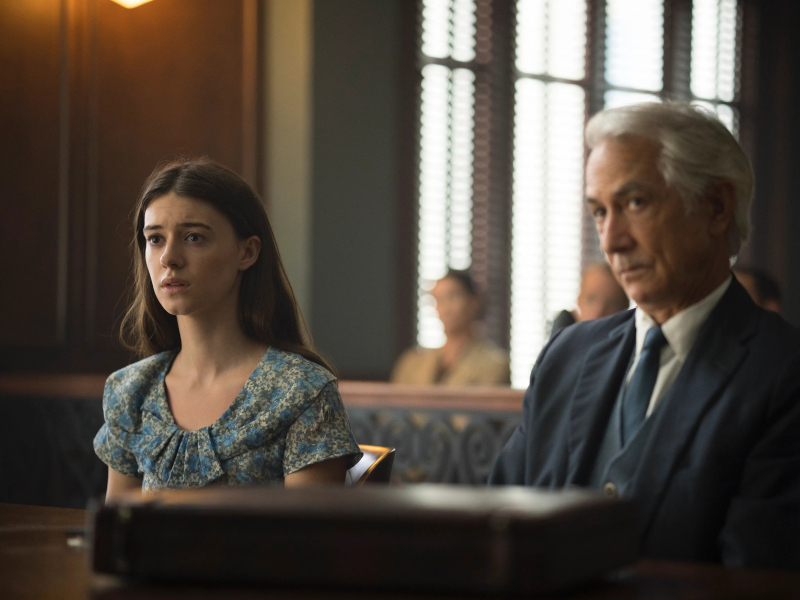
Growing up in the 1950s in the North Carolina Marshlands, young girl Kya (Jojo Regina) witnesses first her mother (Ahna O’Reilly) then, one by one, her siblings leave home because of her violent, abusive father (Garret Dillahunt), the last to go being the youngest, her elder brother Jodie (Will Bundon). As a survival and coping mechanism, Kya learns to stay out of her father’s way and thus spends much of her time on her own enjoying her own company, taking the family motorboat out on the bayou. One day her father disappears too.
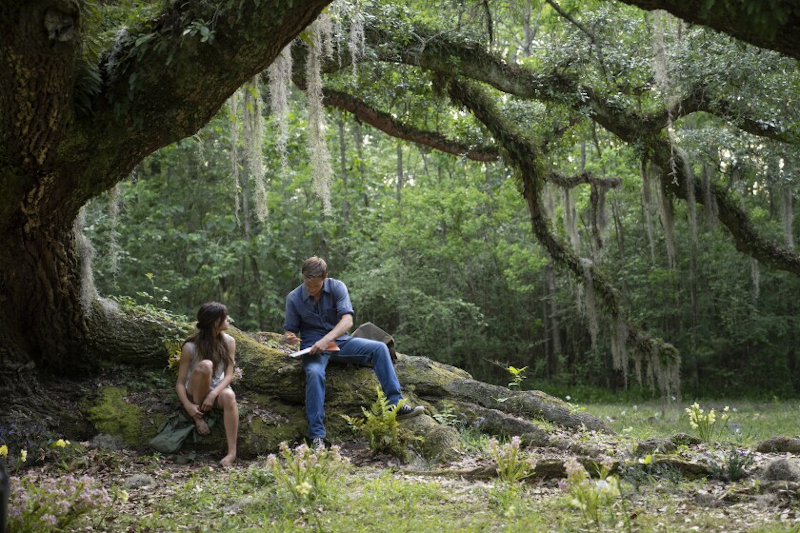
The one exception to her outside solitude is Tate (Luke David Blumm), the slightly older, young boy who was a friend of Jodie’s, who runs into her when she’s lost and helps her find her way home. The two hit it off immediately and become friends, a bond which remains right through their teenage years, when they become romantically involved, until he goes away to college.
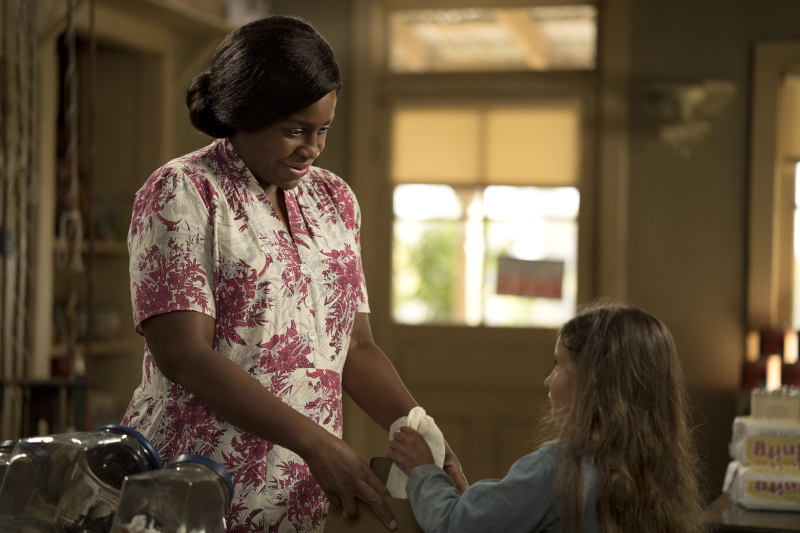
She ekes out an income by catching mussels and selling them to the black couple Jumpin’ (Sterling Macer Jr.) and Mabel (Michael Hyatt), who run the local store and who although they can’t take her into their own home because of the segregationist Jim Crow laws effectively act as surrogate parents to the girl. Mabel convinces her to attend the local school, but the first day she’s there she encounters such prejudice and ridicule as the ‘Marsh Girl’ that she never goes back.
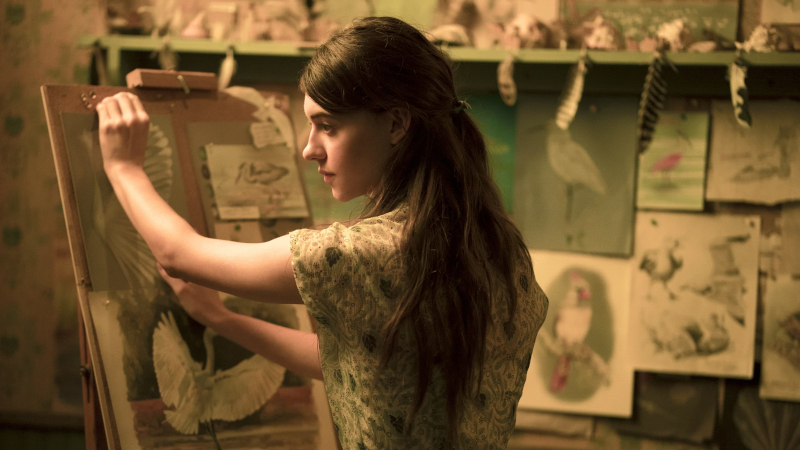
Growing up illiterate, she spends much time painting and drawing local wildlife, something for which she possesses great talent. During their teenage years, Tate (Taylor John Smith) teaches Kya reading and writing, enabling her to write the names of and words about whatever she chooses to draw. Then one day Tate goes away to college and vanishes from her life.
The resulting emptiness inside is soon filled by Chase, with whom despite getting off to a bad start when he attempts to rape her Kya soon forms a romantic bond. While his feelings for her are real, he doesn’t share her affinity for wildlife and the bayou in the way that Tate did. He seems much less well matched to her than Tate was.
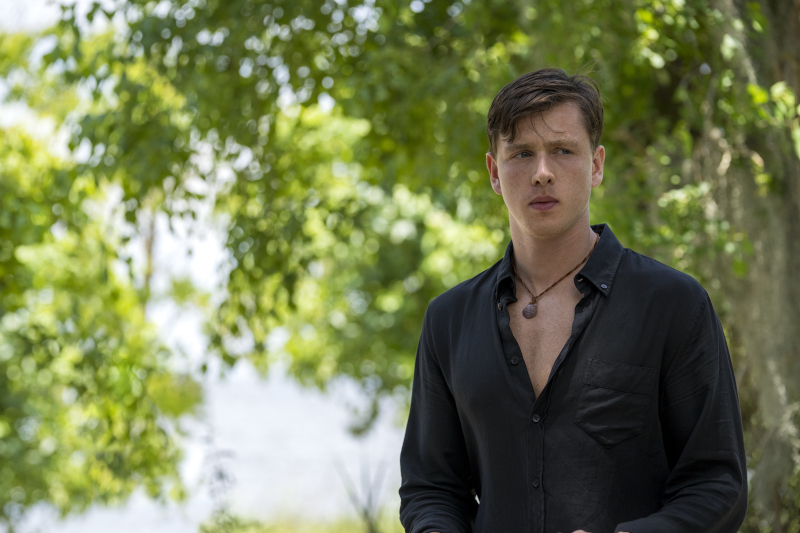
Although much of the talent behind the film is female (director, writers, cinematographer, producers who include Reese Witherspoon) and on one level this is clearly aimed at female viewers, as a male view I found it mostly held my attention. Nudity is kept to a minimum and once Tate and Kya start to fall for one another, he seems almost too good and squeaky clean to be true (it’d be interesting to see if that’s how he appears in the book by Delia Owens).
While the film is generally well cast and the performances are strong, of the three leads, the script gives Harris Dickinson (County Lines, Henry Blake, 2019; Beach Rats, Eliza Hittman, 2017) a much more complex and arguably less sympathetic character to play than the other two, and he rises to the challenge.
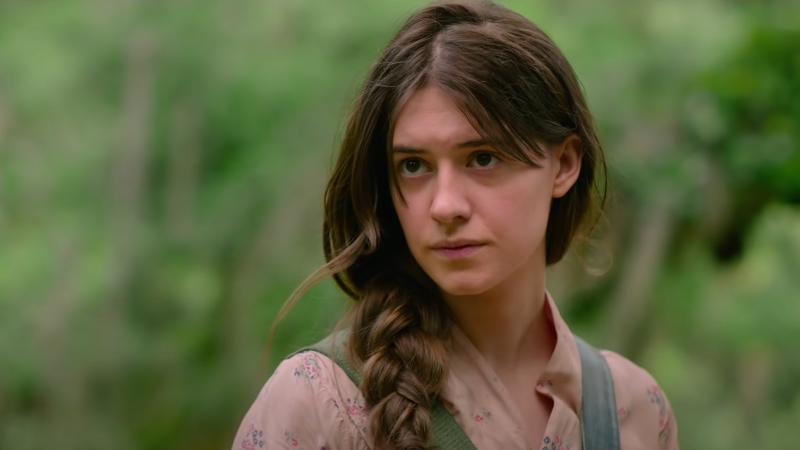
The task of carrying the film, however, falls to Daisy Edgar-Jones, who is rarely off the screen, and she acquits herself well. For the courtroom drama section of the film, a small piece of the larger whole, David Strathairn delivers a sympathetic performance as Kya’s defence lawyer.
It would be unfair to the viewer to reveal some very clever twists and turns, particularly in the final reel, except to say that these (and the closing minutes of the film) were arguably my favourite part: as endings go, this one is pretty satisfying. The film also boasts stunning location work and cinematography, as well as an effective if underplayed score by Mychael Danna. Above all, though, it’s a rattling good yarn with subplots of murder mystery and courtroom drama thrown in for good measure.
Where The Crawdads Sing is out in cinemas in the UK on Friday, July 22nd.
Trailer:
